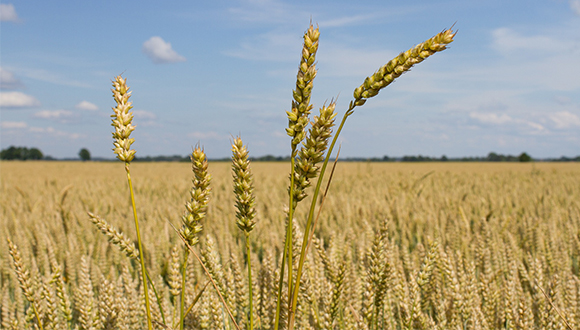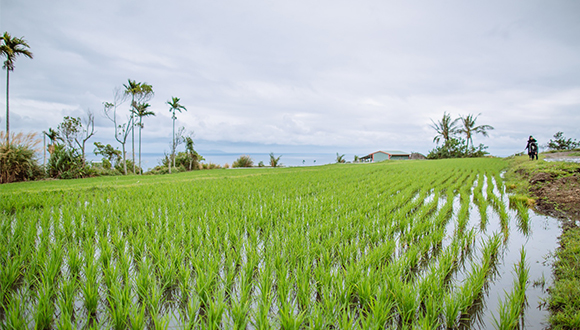Rising temperatures threaten global agricultural production
The production of essential crops such as wheat, maize, rice, and soybean will be substantially reduced. Effective measures for climate change adaptation will be necessary, as well as improvements in crop genetics in order to reduce the impacts of climate change.

Global temperature increase will cause production losses for major crops, according to a study published in the American journal, Proceedings of the National Academy of Sciences. "We have shown that there is a high risk for agricultural production, which is already stagnating in certain regions of the world " says Josep Peñuelas, CSIC researcher at CREAF and one of the study’s authors.
Crops such as wheat, rice, maize, and soybean are vulnerable to climate change and this could pose a severe problem for human societies, above all those in developing countries in regions where climatic changes are expected to be greatest. After all, these four crops represent two thirds of human calorie consumption. For this reason, "it is crucial to evaluate the impact that global temperature rise will have on the production of these and other crops in order to guarantee food supply on a global scale," says Peñuelas.
The results, which varied depending on world region, confirm that the increase in temperature will have negative impacts on crops at at local, regional, and global scales. The study shows that every centigrade degree of mean global temperature increase will suppose a 6% reduction in wheat production, 3.2% for rice, 7.4% for maize, and 3.1% for soybean. The predictions are even worse for the main four maize-producing countries of the world. In the United States, losses for each °C increase are expected to be around 10.3%, and 8% in China. These countries, together with Brazil and India (with less severe losses), produce two-thirds of the global maize supply.

The research consists of a synthesis of previous studies, combining four different analytical methods, bolstering the final conclusions of the study. "It is necessary to implement effective climate change adaptation measures and grow genetic varieties which are more resistant in order to guarantee foodstuff availability," says Peñuelas.
As with all predictions, those from this study carry with them a certain degree of uncertainty. However, what is indisputable is that historical records show how over the last century the temperature has risen by an average of one degree centigrade in the regions where these crops are grown. Looking towards the future, best case scenarios project that by 2100 the temperature will have risen 2.5 °C with respect to preindustrial levels, as shown by another study in which Josep Peñuelas participated.
ARTICLE
Zhao C., Peñuelas J., Asseng S., et al. (2017). Temperature increase reduces global yields of major crops in four independent estimates. Proceedings of the National Academy of Sciences (114), 35, 9326–9331. DOI 10.1073/pnas.1701762114






